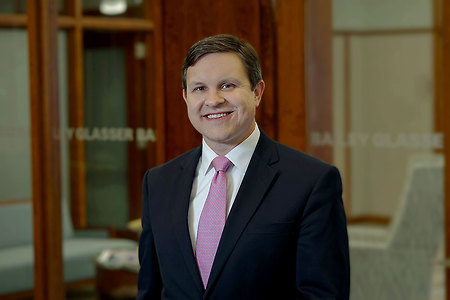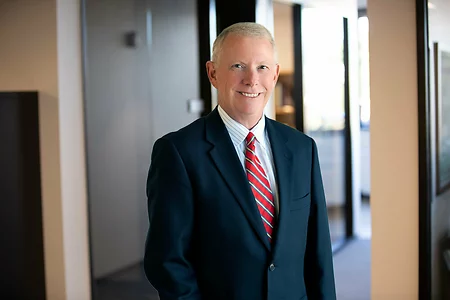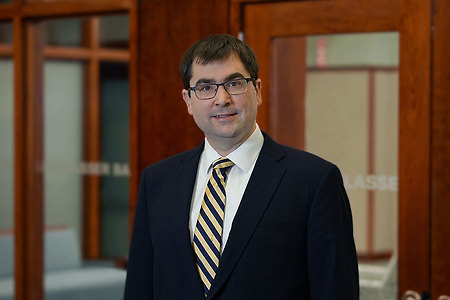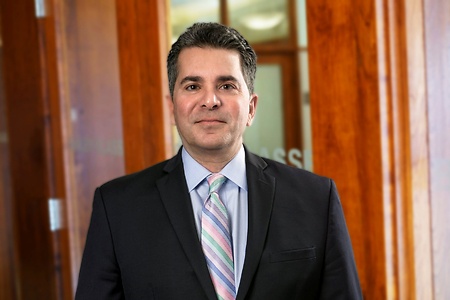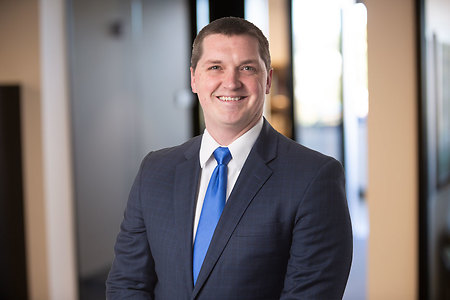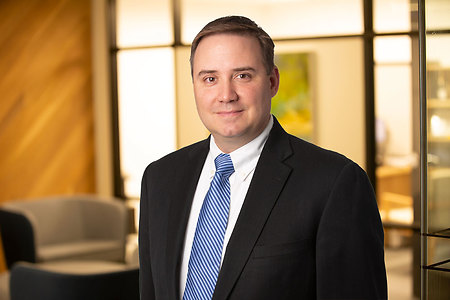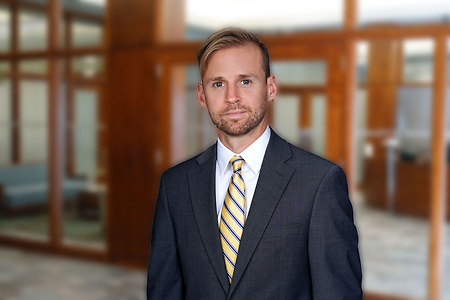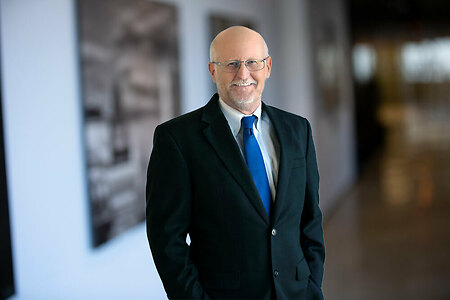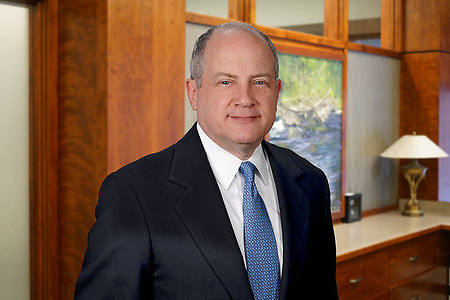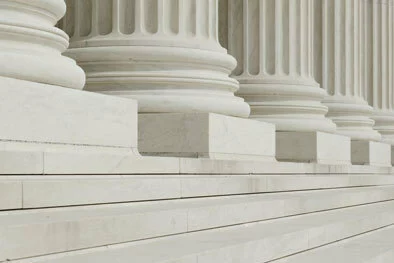Bailey Glasser’s Appellate and Supreme Court practice is a team of elite trial and appellate lawyers who successfully fight for our clients before the Supreme Court of the United States, every federal Court of Appeals, and in state appellate courts throughout the nation.
Overview
Our appellate and Supreme Court lawyers have handled appeals in virtually every substantive legal area, including commercial, constitutional, consumer (Fair Credit Reporting Act, TCPA, debt collection, “pay to pay” schemes, and more), antitrust, bankruptcy, class actions, environmental, international, ERISA, ESOP, bank fraud, personal injury, mass tort, federal preemption, arbitration, and criminal law.
As soon as our litigation teams get involved in a matter (and sometimes before cases are even filed), our appellate team identifies potential issues likely to arise on appeal, then follows up with trial consulting and support. An appellate lawyer on a trial team can assist in presenting the best possible case to a court or jury, while providing invaluable perspective on preservation of issues for appeal.
Bailey Glasser appellate lawyers also co-counsel with other lawyers and law firms with regard to their appeals by providing strategic guidance, support, and assistance with briefing and argument. We are honored that other law firms turn to us for assistance when it becomes apparent that an investment in the best possible legal representation is necessary and we integrate seamlessly with legal teams already in place. This assistance also includes helping to undo adverse judgments at the trial level or helping position a case for a desired settlement.
Our appellate team is led by veteran appellate lawyer and founding partner Benjamin L. Bailey. Ben is a “lawyer’s lawyer” who sits atop numerous national rankings including Chambers USA (Band One), Best Lawyers in America, Super Lawyers, and National Trial Lawyers .
Many Bailey Glasser lawyers have held judicial clerkships with federal and state courts across the country, which enables us to bring that unique perspective when preparing matters for trial and appeal.
Our lawyers have won appeals that have set precedents and established new law, including:
- In Sulyma v. Intel Corp., Bailey Glasser’s appellate ERISA team won a unanimous decision before the Supreme Court of the United States in a case brought on behalf of participants in Intel’s 401(k) plan concerning alleged imprudent investments in several of the plan’s investment options. The Supreme Court decision set new standards for ERISA’s statute of limitations.
- In Krakauer v. DISH Network, L.L.C., Bailey Glasser won a five-day jury trial and a treble damages award from the court, resulting in $61.3 million judgment against DISH Network for thousands of telemarketing calls placed to numbers on the National Do Not Call Registry in violation of the TCPA. On appeal, we won a complete affirmance by the U.S. Court of Appeals for the Fourth Circuit, and the case was featured in the Wall Street Journal and on the CBS Evening News. Read the Fourth Circuit opinion here.
- In Brundle v. Wilmington Trust, Bailey Glasser won a $30 million trial judgment in a case involving multiple breaches of duty by the trustee and complex valuation issues in an Employee Stock Ownership Plan transaction, and won a complete affirmance by the U.S. Court of Appeals for the Fourth Circuit, which established new law on ESOPs that has been cited nationwide. Read the Fourth Circuit opinion here.
- In Allen v. GreatBanc Trust Co., Bailey Glasser secured a precedent-setting decision by the U.S. Court of Appeals for the Seventh Circuit, which established important pleading standards in ESOP cases, and obtained a groundbreaking order that an ESOP-owned company’s indemnification of an ESOP trustee violated ERISA regulations.
- In 2020, Bailey Glasser prevailed before the U.S. Court of Appeals for the Fourth Circuit, where it denied an appeal filed by two individual defendants in a qui tam action brought by Bailey Glasser’s client Citynet, LLC, against two state employees, and against Frontier West Virginia alleging that the defendants knowingly and willfully defrauded the federal government’s Broadband Technology Opportunities Program in violation of the False Claims Act (FCA). The Fourth Circuit’s opinion holds that the state employee defendants are not entitled to assert a qualified immunity defense in a False Claims Act case. The Fourth Circuit’s published opinion not only impacts the pending litigation, but also has application to False Claims Act cases generally.
We can step in at any point in your litigation to help position your case for trial, appeal, or settlement. If our appellate team might help you, please contact us today.
Contacts
Key Contact
Our Team
- Attorney
- Partner
- Partner
- Partner
- Of Counsel
- Partner
- Of Counsel
- Partner
- Attorney
- Partner
- Partner
- Partner
- Attorney
- Partner
- Partner
- Partner
- Attorney
- Partner
- Partner
- Partner
- Partner
- Partner
- Partner
- Partner
- Partner
- Partner
- Partner
- Partner
- Of Counsel
- Partner
- Partner
- Partner
- Of Counsel
Experience
Experience
Members of our appellate team have handled the following matters:
- In Sulyma v. Intel Corp., Bailey Glasser’s appellate ERISA team won a unanimous decision before the U.S. Supreme Court in a case brought on behalf of participants in Intel’s 401(k) plan concerning alleged imprudent investments in several of the plan’s investment options. The Supreme Court decision set new standards for ERISA’s statute of limitations.
- In Krakauer v. DISH Network, L.L.C., Bailey Glasser won a five-day jury trial and a treble damages award from the court, resulting in $61.3 million judgment against DISH Network for thousands of telemarketing calls placed to numbers on the National Do Not Call Registry in violation of the TCPA. On appeal, we won a complete affirmance by the U.S. Court of Appeals for the Fourth Circuit, and the case was featured in the Wall Street Journal and on the CBS Evening News.
- In Brundle v. Wilmington Trust, Bailey Glasser won a $30 million trial judgment in a case involving multiple breaches of duty by the trustee and complex valuation issues in an Employee Stock Ownership Plan transaction, and won a complete affirmance by the U.S. Court of Appeals for the Fourth Circuit, which established new law on ESOPs that has been cited nationwide.
- In Allen v. GreatBanc Trust Co., Bailey Glasser secured a precedent-setting decision by the U.S. Court of Appeals for the Seventh Circuit, which established important pleading standards in ESOP cases, and obtained a groundbreaking order that an ESOP-owned company’s indemnification of an ESOP trustee violated ERISA regulations.
- We obtained an affirmance in the U.S. Court of Appeals for the Ninth Circuit of a contempt order and a $13.8 million default judgment relating to the sale of property in violation of a court order (Blixseth v. Yellowstone Club Liquidating Trust).
- We obtained an affirmance in the U.S. Court of Appeals for the Second Circuit of a $20 million judgment in a commercial dispute regarding sale of a government contracting company (Charron v. Sallyport Global Holdings, Inc.).
- Bailey Glasser obtained a reversal in the U.S. Court of Appeals for the Eleventh Circuit when the court found that that under § 1681i(a) of the Fair Credit Reporting Act, a consumer may recover actual damages even if the defendant credit reporting agency did not publish the consumer’s false credit information to a third party (Collins v. Experian).
- In a 3-2 ruling in 2021, the West Virginia Supreme Court reversed and remanded an Ohio County Circuit Court’s order granting a motion to dismiss a wrongful death by suicide lawsuit concerning a patient suffering from mental illness.
- Bailey Glasser prevailed before the U.S. Court of Appeals for the Fourth Circuit in 2020, where it denied an appeal filed by two individual defendants in a qui tam action brought by Bailey Glasser’s client Citynet, LLC, against two state employees, and against Frontier West Virginia alleging that the defendants knowingly and willfully defrauded the federal government’s Broadband Technology Opportunities Program in violation of the False Claims Act (FCA). The Fourth Circuit’s opinion holds that the state employee defendants are not entitled to assert a qualified immunity defense in a False Claims Act case. The Fourth Circuit’s published opinion not only impacts the pending litigation, but also has application to False Claims Act cases generally.
- Bailey Glasser obtained an appellate court victory that will help protect thousands of Maryland homeowners in a lawsuit challenging “Pay-to-Pay” fees - extra amounts of up to $20 that a mortgage servicer charges for simply processing a monthly payment by phone or internet. The lawsuit, Alexander, et al. v. Carrington Mortgage Services, LLC, alleges that the fees violate Federal and Maryland debt collection law.
Case Studies
News
News & Insights
Look


